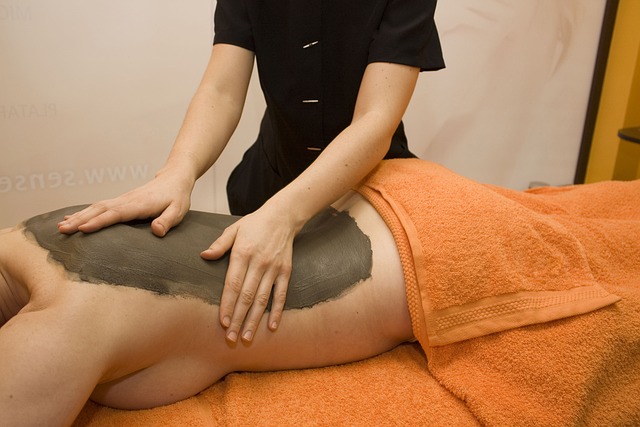Regenerative therapy is a personalized, holistic healthcare approach that leverages the mind-body connection to stimulate natural healing. By assessing age, lifestyle, health history, and personal goals, experts create tailored programs combining techniques like yoga, meditation, acupuncture, and nutritional counseling. This method addresses both mental and physical health simultaneously, offering unique, effective solutions beyond conventional treatments. Success is measured across physical symptoms and subjective/objective well-being metrics, fostering profound, lasting healing.
In today’s fast-paced world, stress and physical ailments often leave many seeking holistic healing solutions. This is where custom mind-body healing programs, rooted in regenerative therapy, step in as powerful tools for well-being. Our article explores the transformative potential of these personalized approaches, delving into the mind-body connection and the art of tailoring treatments. From understanding regenerative therapy’s basics to assessing individual needs, integrating diverse techniques, and measuring success, this guide offers insights for those eager to unlock their body’s regenerating capabilities.
- Understanding Regenerative Therapy: Unlocking the Potential of Customized Programs
- The Mind-Body Connection: A Foundation for Healing
- Personalizing Your Healing Journey: Assessing Individual Needs
- Integrating Techniques: From Exercise to Meditation and Beyond
- Measuring Success: Evaluating the Impact of Regenerative Mind-Body Programs
Understanding Regenerative Therapy: Unlocking the Potential of Customized Programs

Regenerative therapy represents a groundbreaking approach in healthcare, focusing on the body’s inherent ability to heal and regenerate itself. This therapeutic method goes beyond traditional treatments by stimulating and enhancing natural healing processes, targeting specific areas of need within the mind and body. By understanding an individual’s unique biological makeup, healthcare professionals can design customized regenerative programs.
These tailored programs unlock the vast potential of the human body, offering a holistic approach to wellness. Each program is meticulously crafted, considering factors such as age, lifestyle, health history, and specific goals. This personalized aspect ensures that the treatment strategies are not one-size-fits-all but rather targeted interventions designed to optimize healing and recovery.
The Mind-Body Connection: A Foundation for Healing

The mind and body are intricately connected, with each influencing the other in profound ways. This connection forms the bedrock of our overall health and wellness, and it’s a concept that regenerative therapy leverages to its fullest potential. When we experience stress, anxiety, or trauma, our minds and bodies react, often leading to physical symptoms that reflect our emotional states.
Understanding this mind-body connection is pivotal in developing effective healing programs. By addressing both the mental and physical aspects of an individual’s well-being, regenerative therapy aims to promote holistic recovery. This approach recognizes that true healing occurs when we nurture both the mind and body, fostering a sense of balance and harmony that transcends conventional treatments.
Personalizing Your Healing Journey: Assessing Individual Needs

Every individual’s healing journey is unique, and personalized programs are at the heart of effective mind-body wellness. Assessing one’s specific needs is crucial in this process. Through comprehensive consultations, practitioners can uncover underlying factors contributing to an individual’s discomfort or disease. This may involve exploring lifestyle habits, stress management techniques, past traumas, dietary preferences, and genetic predispositions. By understanding these nuances, healers can design tailored interventions that go beyond surface-level solutions.
Personalized healing often incorporates a blend of regenerative therapies, such as mindfulness practices, meditation, yoga, acupuncture, and nutritional counseling. These modalities are selected based on the assessed needs, ensuring a holistic approach that addresses both mental and physical aspects. This individualized attention fosters deeper healing by empowering individuals to take ownership of their well-being, leading to long-lasting positive changes in mind and body.
Integrating Techniques: From Exercise to Meditation and Beyond

Custom mind-body healing programs integrate a diverse array of techniques, from exercise and meditation to more unconventional approaches like regenerative therapy. These holistic methods recognize the interconnectedness of mental and physical health, aiming to rejuvenate both aspects simultaneously. By combining targeted movement, mindfulness practices, and restorative care, such programs offer a comprehensive path towards well-being.
Regenerative therapy, for instance, focuses on stimulating the body’s natural healing mechanisms. This can involve modalities like yoga, tai chi, or specialized massage techniques that promote blood flow and reduce inflammation. Such techniques not only alleviate symptoms but also foster a deeper sense of calm and resilience, laying the groundwork for sustained health improvements.
Measuring Success: Evaluating the Impact of Regenerative Mind-Body Programs

Measuring success is a vital aspect of any healing program, and regenerative mind-body therapies are no exception. The impact of these programs extends beyond physical symptoms, delving into the intricate relationship between mental, emotional, and physiological well-being. Evaluating success involves a comprehensive approach, including subjective reports from participants about their improved quality of life, reduced stress levels, enhanced resilience, and increased overall satisfaction.
Regenerative therapy often employs various metrics to quantify progress. These may include surveys assessing pain reduction, anxiety or depression symptoms, and improvements in sleep patterns. Physiological markers such as blood pressure, heart rate variability, and inflammation levels can also provide valuable insights into the body’s response to treatment. By combining these qualitative and quantitative assessments, practitioners gain a holistic understanding of each individual’s journey, allowing for tailored adjustments to their custom mind-body healing programs.
Regenerative therapy, with its emphasis on personalized programs that tap into the mind-body connection, offers a transformative approach to healing. By assessing individual needs and integrating diverse techniques, these customized programs have the potential to significantly improve overall well-being. As this article has highlighted, understanding the mind-body relationship is key to unlocking the full benefits of regenerative therapy, making it a powerful tool for those seeking holistic recovery and enhanced quality of life.
